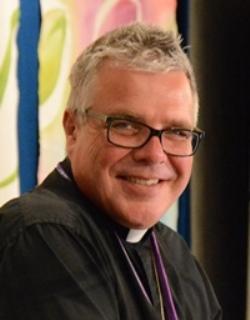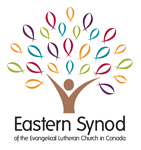
“You don’t save what you don’t love.” So says Margaret Atwood in her address to the 2018 Parliament of World Religions in Toronto in November 2018. “Unless people with faith get behind fixing the planet, it is not going to happen.” You can listen to a portion of her remarks via the CBC Radio Tapestry website.
Ms. Atwood’s challenge was echoed throughout this year’s Bishop’s Academy, an Evangelical Lutheran Church in America continuing education event to which our ELCIC bishops are invited. Theme presenters Dr. Larry Rasmussen and Dr. Cynthia Moe-Lobeda compellingly affirmed Atwood’s assertion regarding the important role that faith communities can and must play in addressing the climate crisis in an Anthropocene – human dominated- context. Whereas humans were once just a branch on the tree of life, we have become the trunk, and the future of the planet now turns on the axis of human choice and action. We are a geological force capable of shaping the planet for good or for ill.
Faith communities are uniquely positioned to inspire actions that bless, rather than harm, the planet and its inhabitants. Referencing the work of Sara Robinson, a Senior Fellow with the Campaign for America’s Future, Dr. Rasmussen cites six reasons for this. I paraphrase these points as follows:
• Religions can bond a diverse community of people around a shared commitment.
• Religious narratives centre people in the long arc of history.
• Religions provide basic formation regarding values and character development.
• Religions hold and defend non-market based values.
• People are religious. 90% of Americans profess a belief in God and ground many of their political decisions in that belief.
• Religious communities promote the belief that human communities are intrinsically sacred.
On Sunday, January 6, the Feast of the Epiphany, the Academy participants worshiped at New Life Lutheran church in Dripping Springs, Texas. The congregation worships outdoors on a 20 acre site for most of the year. When temperatures go below 10 degrees Celsius they worship inside a tent. They do not have a church building, nor do they have any intention to ever have one. Their weekday programming and outreach to the community all involve activities that help people to engage with – and love – the earth.
“You don’t save what you don’t love.” For those of us who live within the territory of the Eastern Synod, year-round, outdoor worship isn’t a realistic option. But we all have the capacity to engage our physical contexts much more than we typically do; to engage in activities that help us to love and bless the places where we “live and move and have our being.” We do, indeed, have the mandate and wherewithal to help, save and protect our earthly home. Science alone cannot alter the apocalyptic trajectory humanity is presently following. Scientific knowledge must be wedded to renewed relationships. It is those renewed relationships that have the greatest capacity to promote changed behaviour. And that’s something we really do know quite a bit about!
